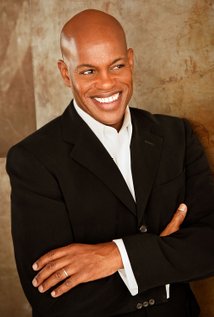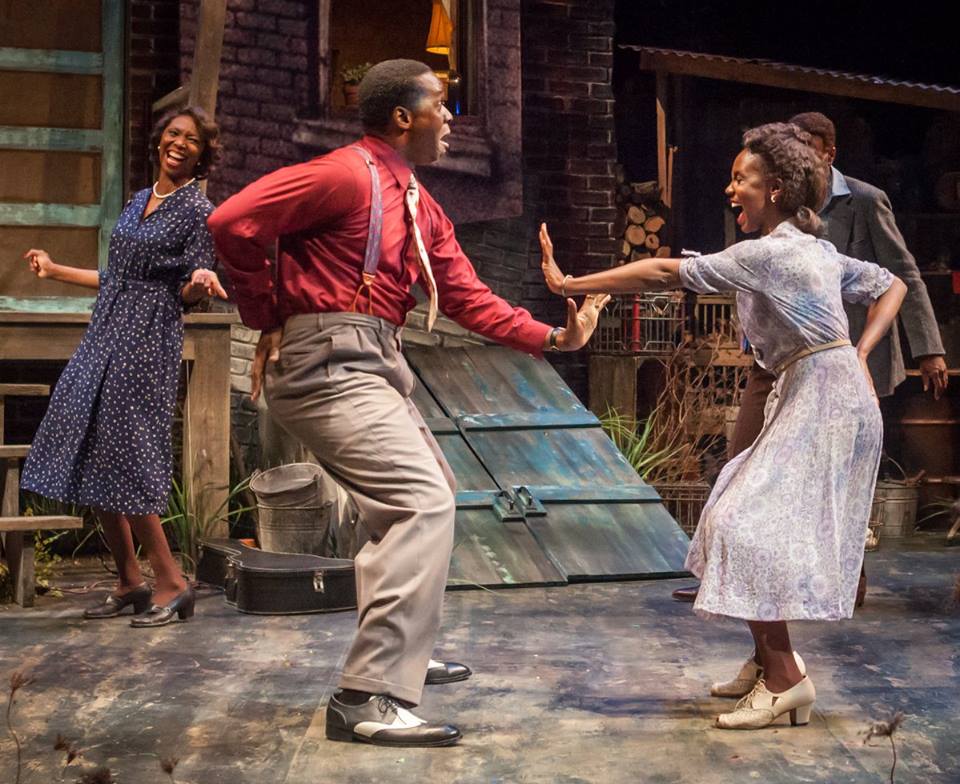The Tempest
Written by William Shakespeare.
Directed by Kathi E. B. Ellis
Reviewed by Keith Waits
Entire contents are copyright © 2012 Keith Waits. All rights reserved.
Outdoor theatre is always a challenge and always a mixed bag of result. The combined effects of sounds from modern transportation and the organic impact of nature, whether the risk of mosquitos or the changing sunlight, can provide obstacles that any director might wish to avoid altogether for the cozy, air-conditioned confines of a theatre.
Yet there is also a tradition of outdoor theatre in Kentucky and outdoor Shakespeare in many places, so the first observation I would make about The Tempest at the Josephine Sculpture Park, located just outside of Frankfort, is that the difficulties found in this particular location are no more and no greater than one would find in, say, Kentucky Shakespeare in Louisville’s Central Park. Yes, HWY 127 runs close enough to the stage to be heard by the audience, but a newly-installed sound system does a fair job of competing. And yes, the only light is from the sun, which makes where you choose to sit somewhat crucial and made the last few minutes of the production seem a bit of a race to deliver the final lines while there was light enough to follow the action. But the shifting angle of the light accentuates the natural environment and its fine appropriation as a setting for one of Shakespeare’s most elemental stories.
I have always been fond of The Tempest, which, even though it often gets knocked by some scholars as one of the Bard’s weakest plays, strikes me as a highly accessible work. The combination of magic, revenge and comedy played fairly well in this production, which manages to tell the story in a clean and forthright manner, even if some of the deeper elements get pushed into the background. Some of that is because the more obvious and entertaining aspects of the material play better in an open-air theatre environment. Director Kathi E. B. Ellis seems to understand this and stages the action with an eye towards engaging the audience in a populist manner. The broad comedy went over very well with the family audience, with the exchanges between Brian West’s excellent and authoritative Stephano and Spencer Scruggs’s colorful Trinculo winning particular favor with the younger audience members.
The more serious themes suffered somewhat, with Keith McGill’s Caliban earning laughs but never exploring the tragedy and suffering that are also present in this character. Clint Gill stumbled through his early scenes as Prospero but found his footing as the evening progressed, first capturing the authority, and then eventually some of the majesty and mystique of one of Shakespeare’s most enigmatic leads. There was a sense of the actor still, fascinatingly, discovering the character. The four noblemen who are the center of the political intrigue were an uneven mix, with Steve Zimmerman an efficient if uninspired Alonzo, King of Naples; and Joey Arena an engaging Sebastian, his duplicitous and scheming brother. But DeAldon Watson missed, again, the darker, deeper depths of Antonio’s evil; and Hy Stein gave us a Gonzalo that, despite his borscht-belt color, was slow enough to drag the quartet’s scenes to a crawl in some key moments.
More successful was the earnest yet delightful presentation of Ariel by Clayton Marshall. Dominating his scenes with a fey athleticism, Mr. Marshall was brimming with confidence and charm. Dawn Schultz and Taylor Campbell were satisfactory as the young lovers, Miranda and Ferdinand, but, as written, they are not the most vital lovers in Shakespeare, perhaps being one of the reasons why the play never quite reaches the heights of romantic feeling we expect from his love stories. Still, Ms. Schultz does make the most of one of the most iconic lines in the script:
O wonder!
How many goodly creatures are there here!
How beauteous mankind is! O brave new world
That has such people in’t!
Overall, the production communicates the scenario effectively enough that it simply does work. The costumes by Lindsay Chamberlin were a pretty effective mix of royal-class modern-dress and fantasy costumes for the island dwellers; and the set design by Melanie VanHouten utilized a large 3-D installation by Mollie Rabiner entitled “The Clarity Vehicle” that was particularly effective in suggesting a sea-going vessel in the opening. This last detail is one of the unique features of this series, that a specific piece of sculpture is placed in the rough-hewn, natural amphitheater as the centerpiece of the set-design. The concept may be fraught with uncertainty, but it is also an intriguing marriage of the visual and performing arts that emphasize the original idea of the park itself and the nascent summer series of outdoor Shakespeare that is being attempted here.
Josephine Sculpture Park, which was opened in 2009 by Ms. VanHouten and named for her grandmother, is a still-developing concept, a landscape of tight-knit hills and vegetation on what was formerly a working farm. It serves as the home for a dozen or so outdoor sculptures that are placed for indeterminate lengths of time. Most are large-scale steel constructions, such as Lexington artist Emily Blake McClellan’s “Suspended in Water or Air,” a surprisingly lighter-than-air illusion of floating shapes; or Andrew Marsh’s “Function of Toole,” which resembles a children’s playground constructed from rusted steel, iron and bronze, a jungle gym with an industrial aesthetic (climbing is allowed). Most of the work was not created specifically for the location, but residencies are a part of the program, with artists working onsite to create new sculptures. The grounds are somewhat remote, but are actually a short distance from I-64 off HWY 127.
It will be interesting to see what develops on these idyllic grounds over time, both as a sculptural showcase neighboring the state capitol, and as another opportunity for theatre to reach new audiences. Watch this space.
The Tempest
June 7-9, 14-16 @ 7 p.m.
Tickets are $10. It is recommended that you bring lawn chairs or blankets. There are a few picnic tables and hay bales, but the optimum seating is on a grassy slope in the shade.
JC SummerStage
Josephine Sculpture Park
Frankfort, KY




